Financial System Adaptability and Resilience
This research group investigates critical aspects of financial system adaptability and resilience. First, it analyses the impact of natural disasters on financial systems. Second, the group aims to investigate the effects of political preferences for the green transition. Third, the group's research analyses the role of culture in economies.
Research Cluster
Financial Resilience and RegulationYour contact

Mitglied - Department Financial Markets
EXTERNAL FUNDING
07.2016 ‐ 12.2018
Relationship Lenders and Unorthodox Monetary Policy: Investment, Employment, and Resource Reallocation Effects
Leibniz Association
We combine a number of unique and proprietary data sources to measure the impact of relationship lenders and unconventional monetary policy during and after the European sovereign debt crisis on the real economy. Establishing systematic links between different research data centers (Forschungsdatenzentren, FDZ) and central banks with detailed micro-level information on both financial and real activity is the stand-alone proposition of our proposal. The main objective is to permit the identification of causal effects, or their absence, regarding which policies were conducive to mitigate financial shocks and stimulate real economic activities, such as employment, investment, or the closure of plants.
01.2015 ‐ 12.2019
Interactions between Bank-specific Risk and Macroeconomic Performance
German Research Foundation (DFG)
Refereed Publications
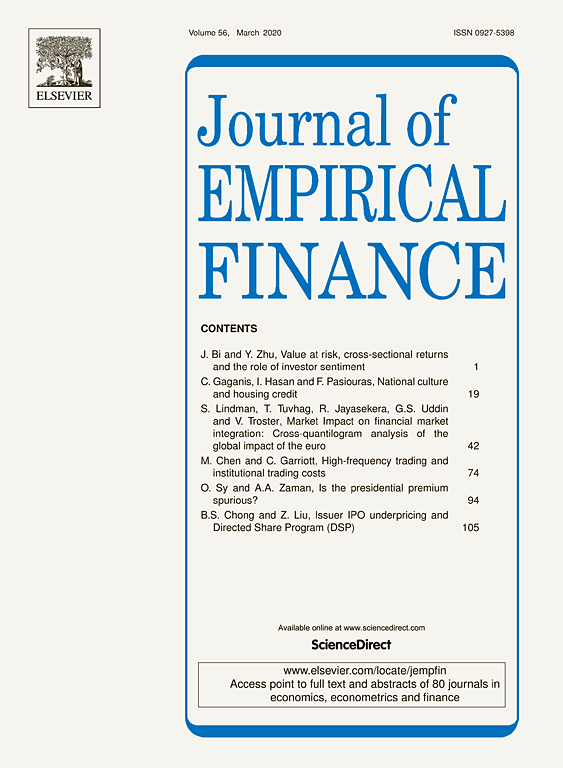
Stock Price Fragility and the Cost of Bank Loans
in: Journal of Empirical Finance, September 2021
Abstract
This study examines whether the flow volatility experienced by institutional investors affects firms’ financing costs. Using Greenwood and Thesmar’s (2011) stock price fragility measure, we find that there is a positive relationship between fragility and firms’ costs of bank loans. This effect is most pronounced when lenders rely more on institutional shareholders to discipline corporate management, or when loans are made by relationship lenders, suggesting that unstable flows could weaken institutional investors’ monitoring effectiveness and strengthen relationship banks’ bargaining power.
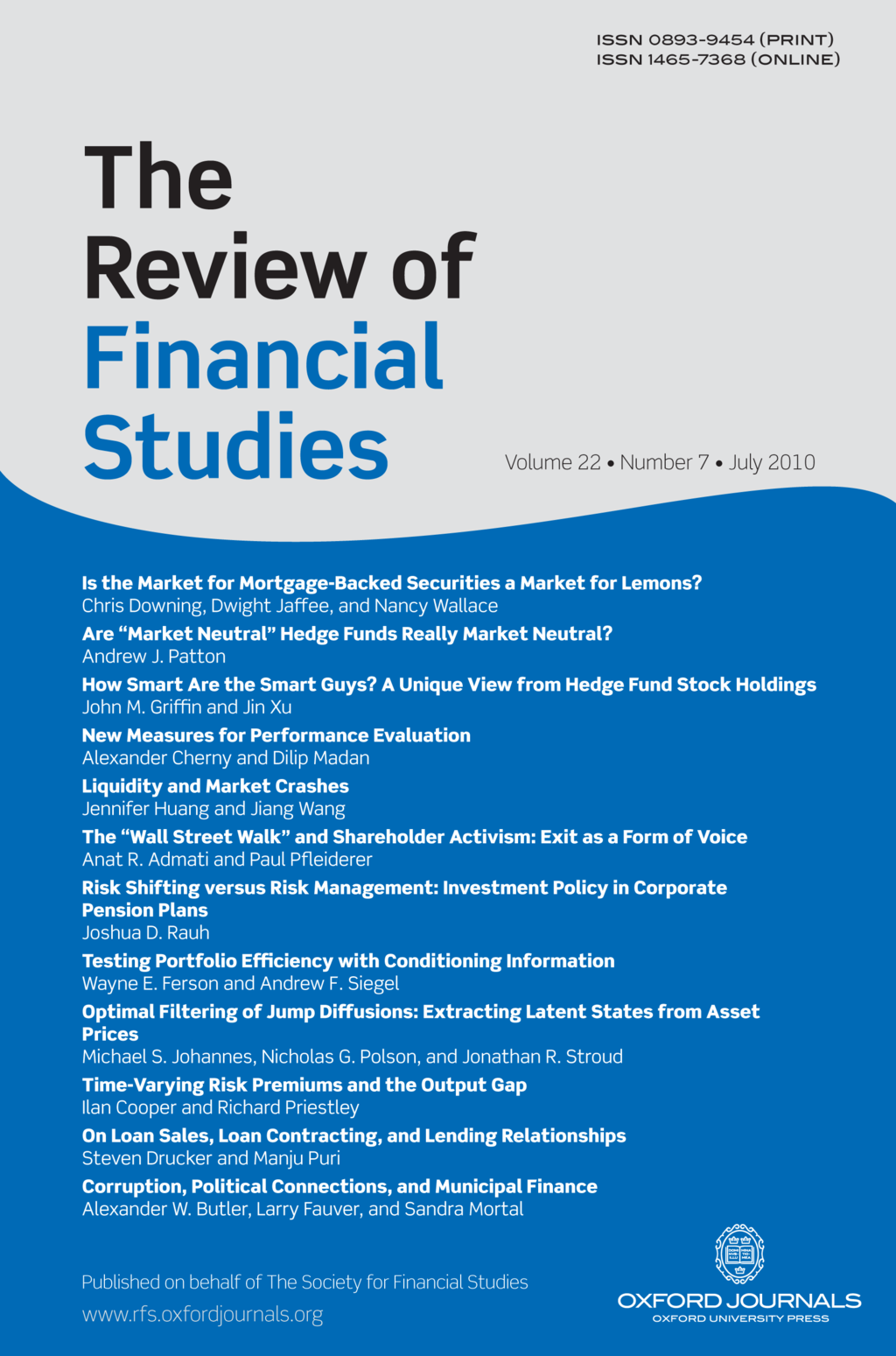
Political Cycles in Bank Lending to the Government
in: Review of Financial Studies, No. 6, 2021
Abstract
We study how political party turnover after German state elections affects banks’ lending to the regional government. We find that between 1992 and 2018, party turnover at the state level leads to a sharp and substantial increase in lending by local savings banks to their home-state government. This effect is accompanied by an equivalent reduction in private lending. A statistical association between political party turnover and government lending is absent for comparable cooperative banks that exhibit a similar regional organization and business model. Our results suggest that political frictions may interfere with government-owned banks’ local development objectives.
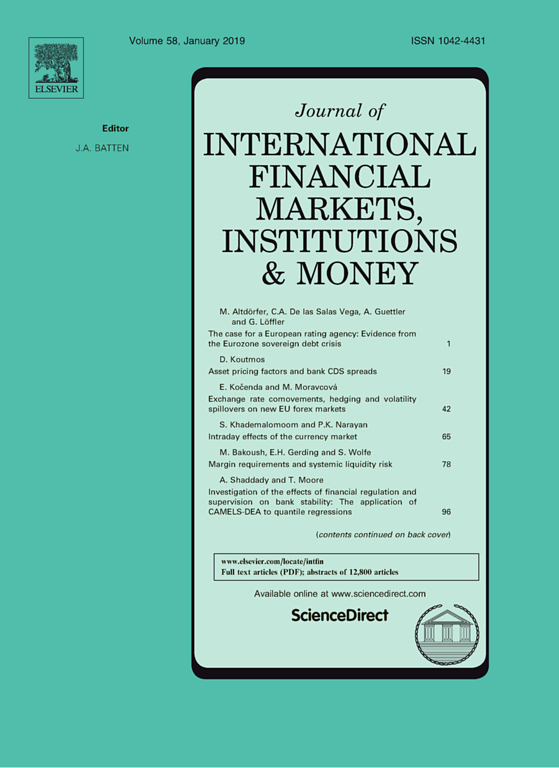
Loan Syndication under Basel II: How Do Firm Credit Ratings Affect the Cost of Credit?
in: Journal of International Financial Markets, Institutions and Money, May 2021
Abstract
This paper investigates how syndicated lenders react to borrowers’ rating changes under heterogeneous conditions and different regulatory regimes. Our findings suggest that corporate downgrades that increase capital requirements for lending banks under the Basel II framework are associated with increased loan spreads and deteriorating non-price loan terms relative to downgrades that do not affect capital requirements. Ratings exert an asymmetric impact on loan spreads, as these remain unresponsive to rating upgrades, even when the latter are associated with a reduction in risk weights for corporate loans. The increase in firm borrowing costs is mitigated in the presence of previous bank-firm lending relationships and for borrowers with relatively strong performance, high cash flows and low leverage.
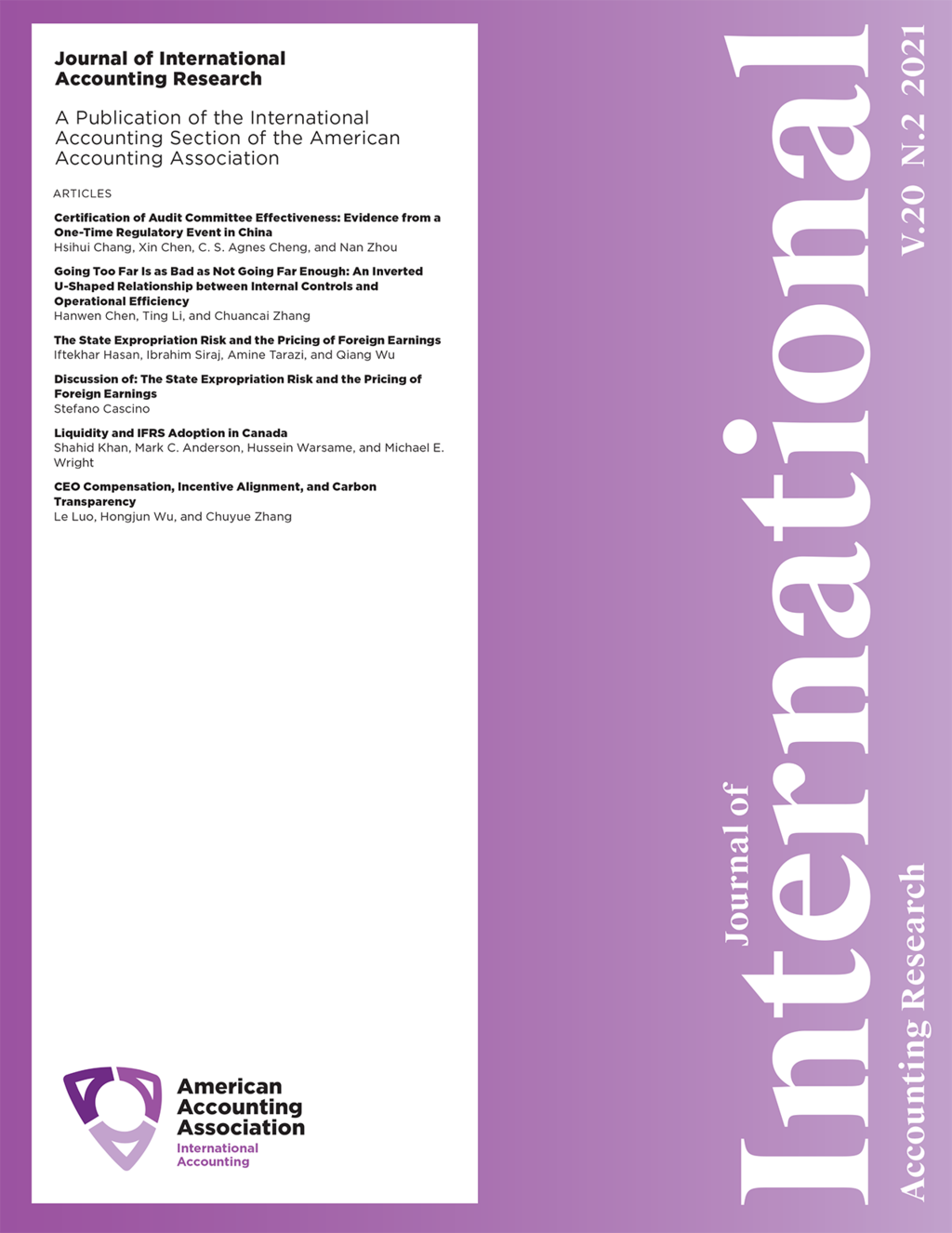
The State Expropriation Risk and the Pricing of Foreign Earnings
in: Journal of International Accounting Research, No. 2, 2021
Abstract
We examine the pricing of U.S. multinational firms' foreign earnings in regard to their risk of expropriation and unfair treatment by the governments of the countries in which their international subsidiaries are located. Using 8,891 firm-years observations during the 2001–2013 period, we find that the value relevance of foreign earnings increases with the improvement of the protection from state expropriation risk in the subsidiary host-countries. Our results are not driven by the earnings management practice, investor distraction, country informativeness, and political and trade relationship of a foreign country with the U.S. Furthermore, our results are robust to the confounding effects of country factors, measurement error in the variable of the risk of expropriation, the influence of private contracting institutions, and endogeneity in the decision of the location of subsidiaries.
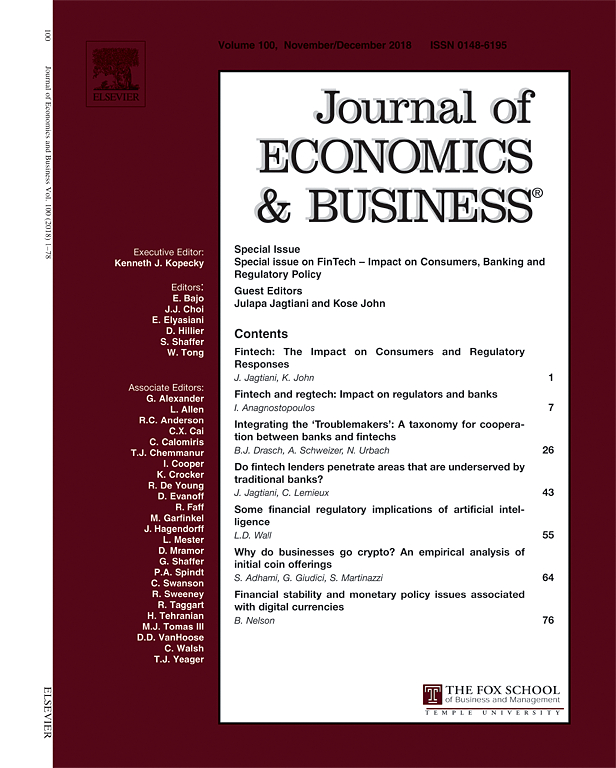
Finance-Growth Nexus and Banking Efficiency: The Impact of Microfinance Institutions
in: Journal of Economics and Business, March-April 2021
Abstract
This paper investigates the relative importance of microfinance institutions (MFIs) at both the macro (financial development, economic growth, income inequality, and poverty) and micro levels (efficiency of traditional commercial banks). We observe a significant impact on most of the fronts. MFIs’ participation increases overall savings (total bank deposits) and credit allocation (loans to private sector) in the economy. Their involvement enhances economic welfare by reducing income inequality and poverty. Additionally, their active presence helps to discipline the traditional commercial banks by subjecting them to more competition triggering higher efficiency.
Working Papers
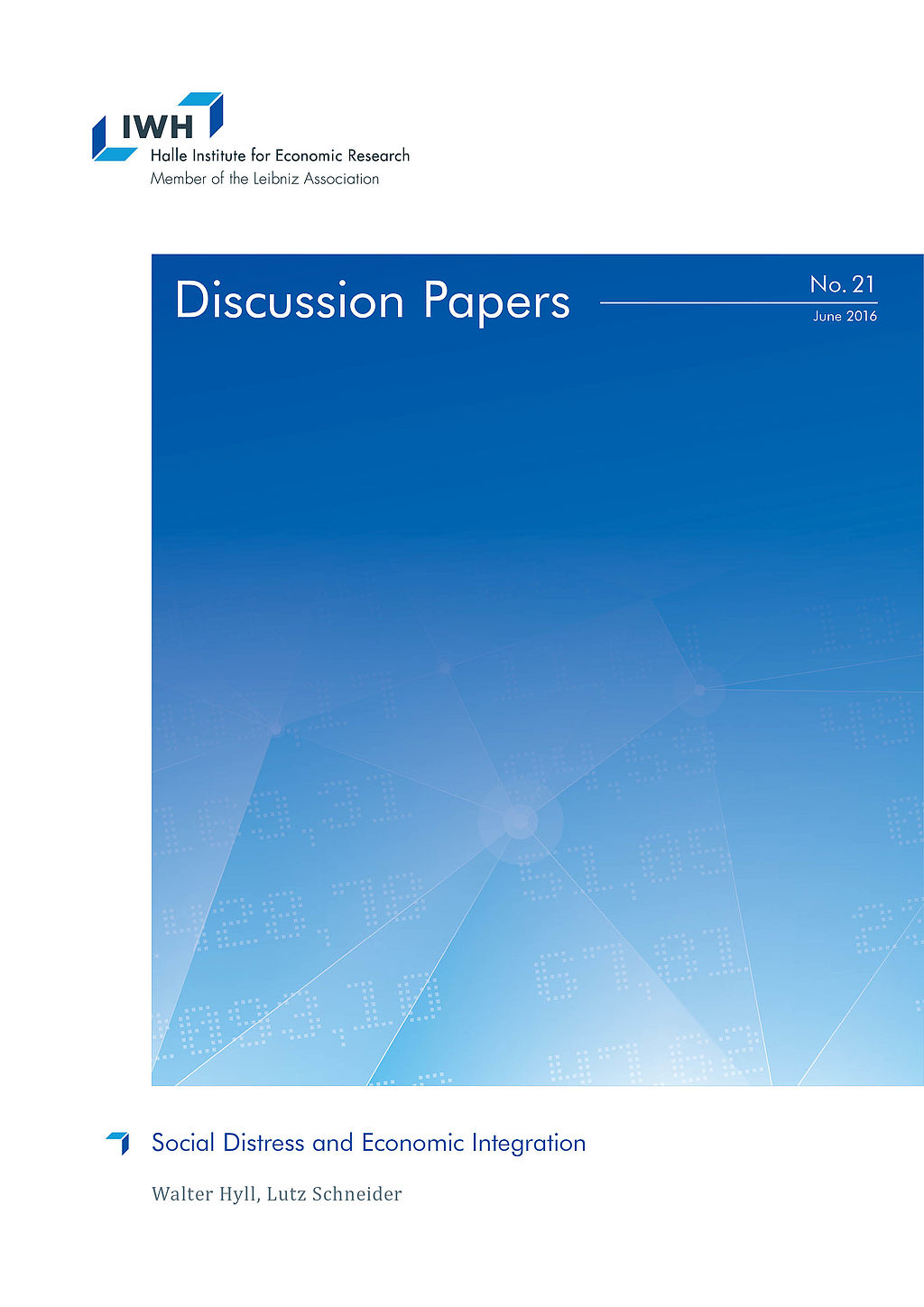
Corporate Governance Structures and Financial Constraints in Multinational Enterprises – An Analysis in Selected European Transition Economies on the Basis of the IWH FDI Micro Database 2013 –
in: IWH Discussion Papers, No. 3, 2015
Abstract
In our analysis, we consider the distribution of decision power over financing and investment between MNEs’ headquarters and foreign subsidiaries and its influence on the foreign affiliates’ financial restrictions. Our research results show that headquarters of multinational enterprises have not (yet) moved much decision power to their foreign subsidiaries at all. We use data from the IWH FDI Micro Database which contains information on corporate governance structures and financial restrictions of 609 enterprises with a foreign investor in Hungary, Poland, the Czech Republic, Slovakia, Romania and East Germany. We match data from Bureau van Dijk’s AMADEUS database on financial characteristics. We find that a high concentration of decision power within the MNE’s headquarter implicates high financial restrictions within the subsidiary. Square term results show, however, that the effect of financial constraints within the subsidiary decreases and finally turns insignificant when decision power moves from headquarter to subsidiary. Thus, economic policy should encourage foreign investors in the case of foreign acquisition of local enterprises to leave decision power within the enterprise and in the case of Greenfield investment to provide the newly established subsidiaries with as much power over corporate governance structures as possible.


















